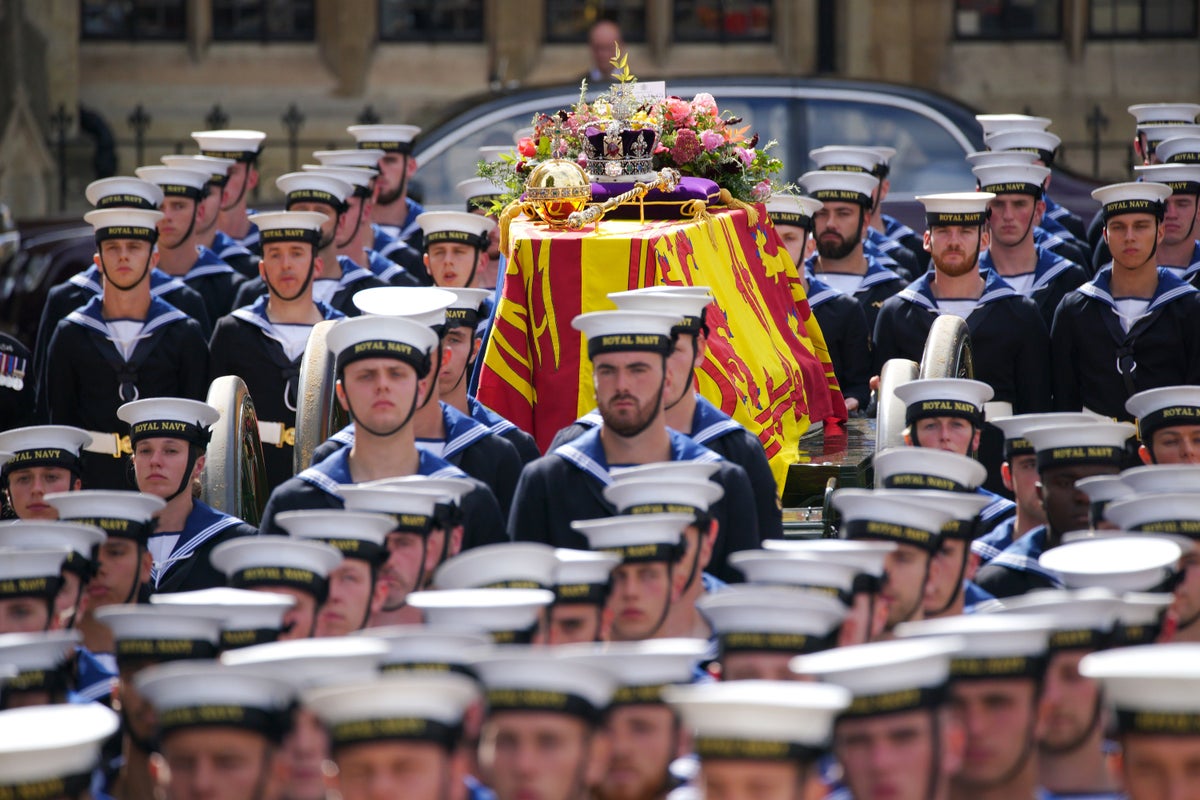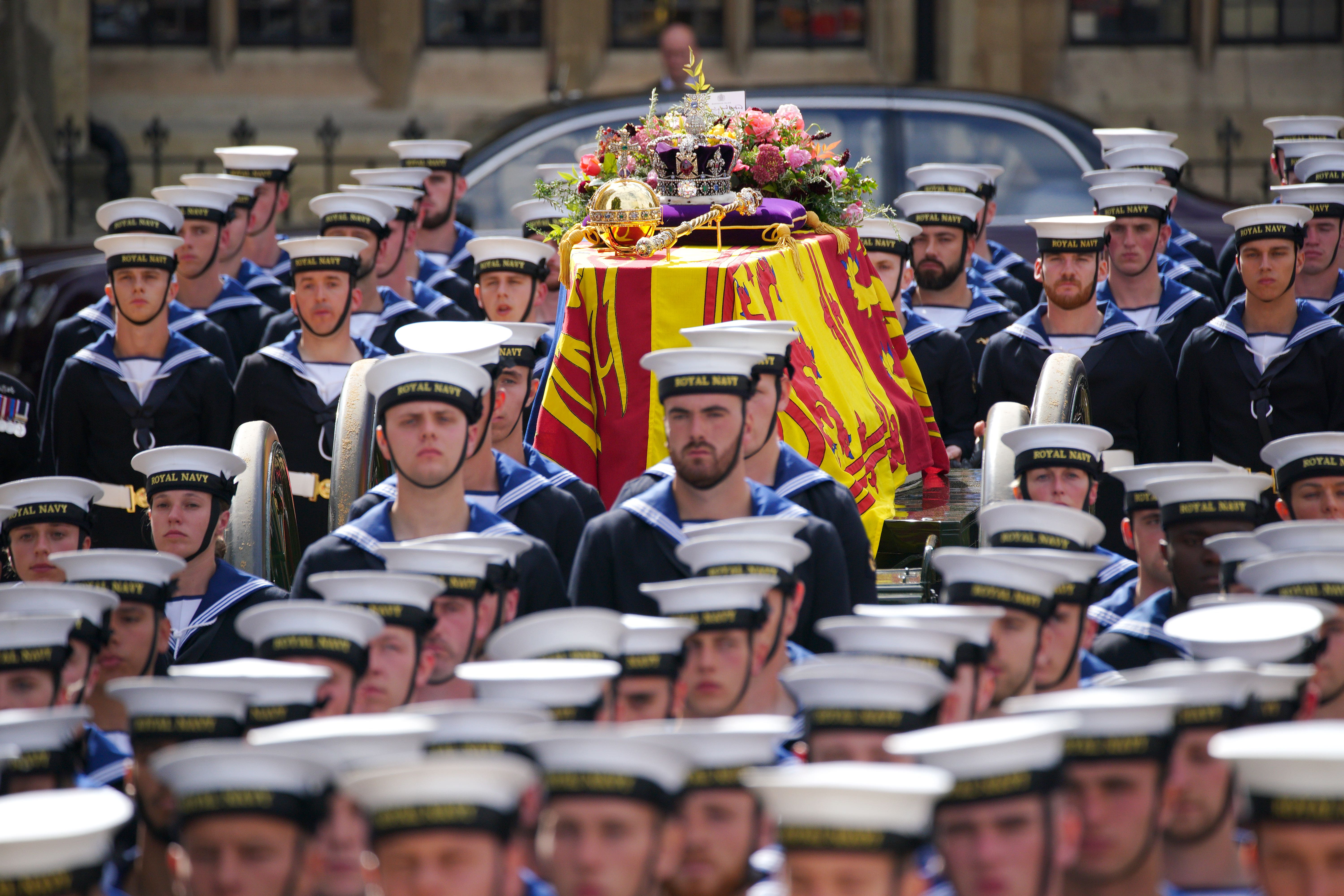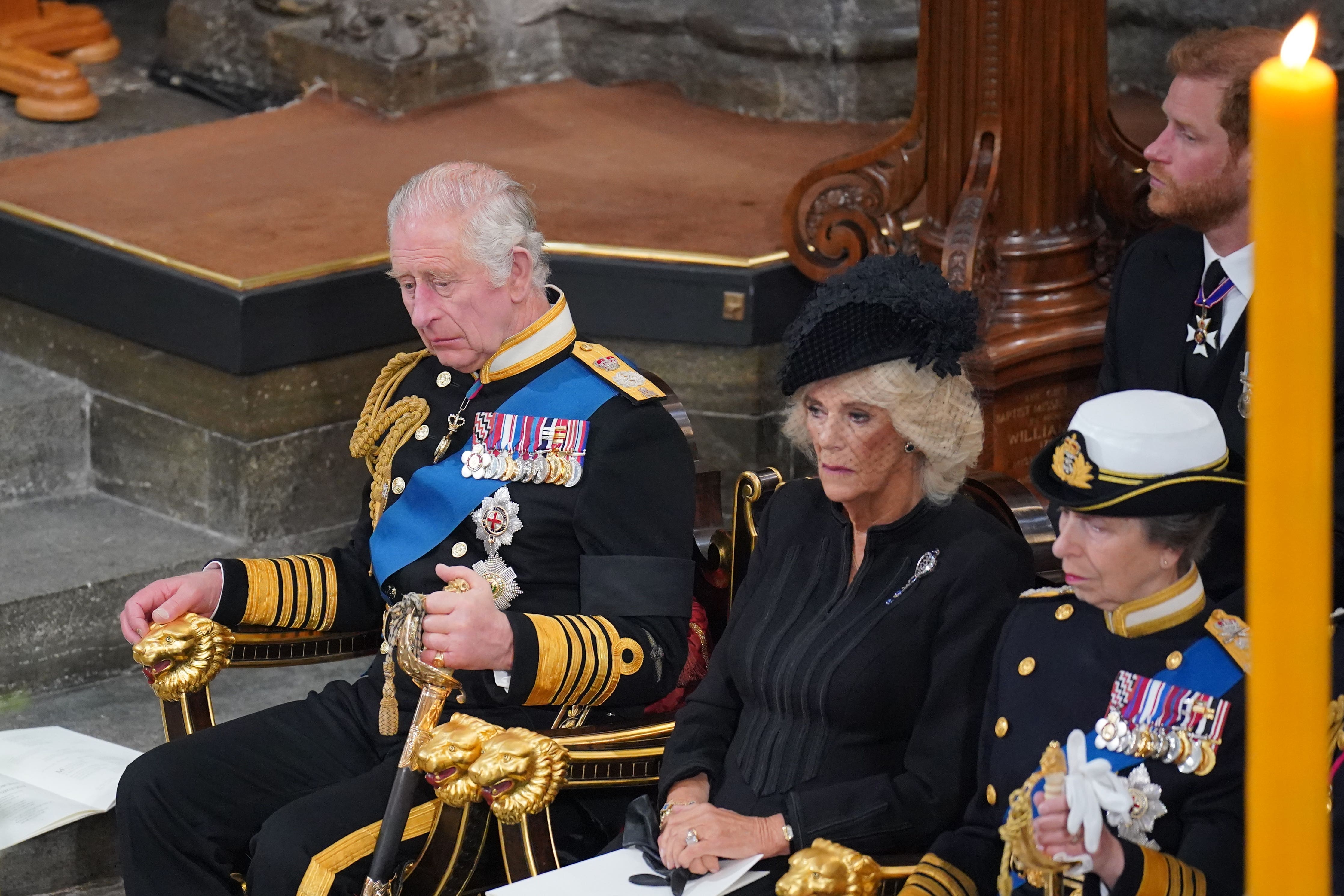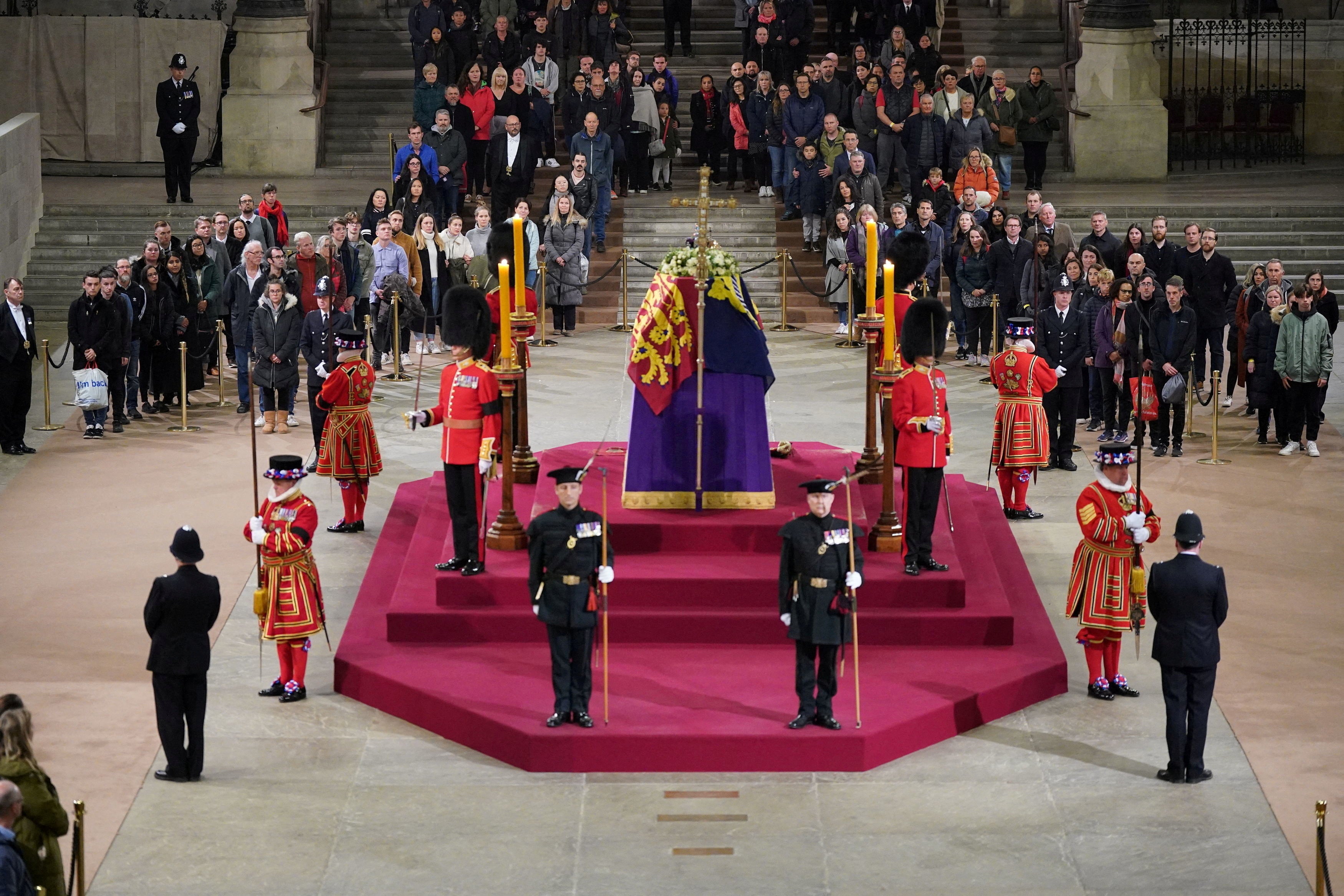
The funeral and lying-in-state of Queen Elizabeth II cost taxpayers an estimated £161.7m, official figures show.
After 70 years on the throne, the monarch’s coffin was paraded through Scotland from Balmoral to Edinburgh before it lay in Westminster Hall for four days prior to her funeral on 19 September.
More than 250,000 people filed through the ancient hall in the Palace of Westminster to pay their respects, before the late Queen’s coffin was taken to its final resting place in the King George VI Memorial Chapel in Windsor.

New figures published by as part of a parliamentary written statement by chief secretary to the Treasury, John Glen, show that the largest costs were incurred by the Home Office, which reported spending £73.7m on the commemorations.
More than £57m was spent by the Department for Culture, Media & Sport, the ministry tasked with organising the miles-long queue to enter Westminster Hall, a process which saw thousands queue overnight in bitterly cold conditions, with more than 1,500 treated by paramedics.
A similar – albeit less gruelling – process took place in Edinburgh as the Queen’s coffin was carried up the Royal Mile and set for 12 hours in St Giles’ Cathedral, with members of the public filing past as senior royals held a short vigil there.
According to the Treasury, the Scottish Government spent £18.8m on the occasion, which saw thousands of residents turn out to pay their respects to the late monarch.
The Ministry of Defence, Department for Transport, Welsh Government, Northern Ireland Office and Foreign, Commonwealth and Development Office also spent between £3m and £2m, the figures showed.

The late Queen’s state funeral at Westminster Abbey followed a period of national mourning, during which the newly announced King Charles III and Camilla, the Queen Consort, made visits to Wales and Northern Ireland.
In his parliamentary statement, Mr Glen said the Treasury had provided additional funding where necessary and that the devolved governments were “fully” refunded for their costs.
The monarch’s death on 8 September and the subsequent period of national mourning was “a moment of huge national significance”, Mr Glen said.

The government’s priority was to ensure that “these events ran smoothly and with the appropriate level of dignity, while at all times ensuring the safety and security of the public”, he added.
Speaking in the days after the state funeral, then culture secretary Michelle Donelan said she thought “the British public would argue that [it] was money well spent”.
“You saw so many thousands out there and I don’t think anybody can suggest that our late monarch didn’t deserve that send-off, given the duty and the selfless service that she committed to over 70 years,” Ms Donelan told Sky News.
It would be “downright preposterous” to suggest otherwise, the minister said.







